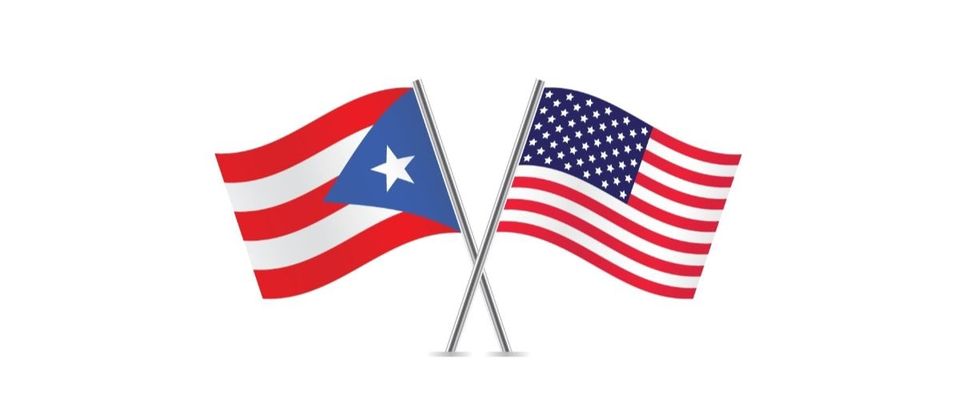The U.S. citizens of Puerto Rico celebrate José Celso Barbosa Day on Friday, a holiday honoring the father of the Puerto Rico Republican Party’s birthday. It’s appropriate that the founder of the island’s Republican Party is also the father of the Puerto Rico statehood movement. It’s also a fitting opportunity to announce a new Republican campaign for statehood: GOP 4 Puerto Rico.
José Celso Barbosa’s legacy remains apparent today. Not only are Puerto Ricans overwhelmingly in favor of statehood, they also remain dedicated to conservative American ideals. They express their belief in traditional American values by consistently electing conservative leaders. In fact, the current Puerto Rico Representative to the U.S. Congress and Lieutenant Governor, as well as the Speaker of the House and President of the Senate in the territorial legislature, are all Republicans. Yet their religiously, socially, and fiscally conservative American principles are unparalleled by their dedication to the truest American value: a commitment to serving their nation.
Soldiers from Puerto Rico have fought overseas for over 100 years as members of the United States Armed Forces. They fought alongside their fellow American citizens to bring democracy – something that they do not have access to in the U.S. – to foreign lands. More than 1,200 Puerto Ricans have laid down their lives in service to their country and to bring democracy to others. Now, it’s time to reward their sacrifice and bring democracy to Puerto Rico.
Thomas Jefferson said, “We in America do not have government by the majority. We have government by the majority who participate.” Despite overwhelming support for statehood on the island, the U.S. citizens of Puerto Rico have been denied the right to participate in the government of their own country, one for which they have fought and died. The single Puerto Rico representative to the U.S Congress — serving as the voice of the 3.7 million Puerto Ricans — doesn’t even have a vote.
Exclusion from our nation’s democratic process has been a major factor in the underdevelopment of the territory’s economy, as well as the economic depression it has been in for over a decade. When Congress closed a military base on the island, Puerto Ricans had no vote. When Congress reduced tax benefits, including Medicare and Social Security, for island residents even though they pay into the system at the same rate as other U.S. citizens, Puerto Ricans had no vote. Unlike states, which have a voice in everything essential from trade agreements to education to healthcare to our Commander in Chief, Puerto Ricans have no vote in the laws that impact their economy.
These laws have resulted in the loss of one out of every six jobs, led to one in every eight Puerto Ricans moving to the mainland to experience the greater opportunity living in a state affords, and ultimately sent Puerto Rico into a severe economic depression. As a result, the federal government and the American taxpayer have been forced to step in as Puerto Rico faced crippling economic and natural disaster-induced devastation in recent years. With $95 billion in projected 2017 hurricane season damages and $72 billion in Puerto Rican debt, it’s clear that immediate action is needed to empower the loyal U.S. citizens of Puerto Rico and protect U.S. taxpayers in the process.
Conservatives agree with José Celso Barbosa that the solution is statehood. Since 1940, almost every Republican Party platform has supported the right of Puerto Rico to become a state.
History has shown that placing Puerto Rico on the pathway to statehood will create a new economic situation that is fruitful for the island, mainland and the U.S. economy at large. In fact, the most recent territories to become states — Hawaii and Alaska — averaged double-digit economic growth for more than a decade after admission. Statehood will provide a climate of stability that will allow Puerto Rico to attract new investors and provide security to current investors. It is the only solution that positions the island for tremendous economic growth without additional federal investment.
The United States also stands to gain something no other state in the Union can provide: a national security stronghold in the Caribbean. The State Department and USAID agree that the Caribbean is vital to U.S.’s ability to counter organized crime and illicit trafficking, support democracy throughout the Western hemisphere, strengthen energy security, and create jobs through increased trade and investment. By granting Puerto Rico statehood and the border security resources associated with it, the U.S. will be able to rely on Puerto Rico as our nation’s “third border” and as its center for Caribbean strategy – a fitting role for the U.S. citizens who have served valiantly in every major conflict since World War I.
As a proud Republican, I believe in the ideal our forefathers fought for: the right for a voice in their own government. Today, only Congress can provide this voice to the U.S. citizens of Puerto Rico. This is why Puerto Rico’s representative to Congress, Republican Congresswoman Jenniffer González-Colon, and 45 bipartisan cosponsors introduced H.R.6246, the Puerto Rico Admission Act last month.
As Puerto Rico celebrates José Celso Barbosa Day tomorrow, it’s time for Congress to honor the valiant Puerto Rican soldiers who have fought meritoriously for the U.S. for more than a century. It’s time for Congress to listen to the will of our fellow U.S. citizens living on the island. It’s time for Congress to provide Puerto Rico with a pathway to statehood that will add an important national security stronghold in the Caribbean, thriving economy, and conservative voice in the Union.
Jose Fuentes is the former attorney general of Puerto Rico. He currently serves as the chairman of the Puerto Rico Statehood Council and on the Republican National Committee Hispanic Advisory Board.
The views and opinions expressed in this commentary are those of the author and do not reflect the official position of The Daily Caller.


